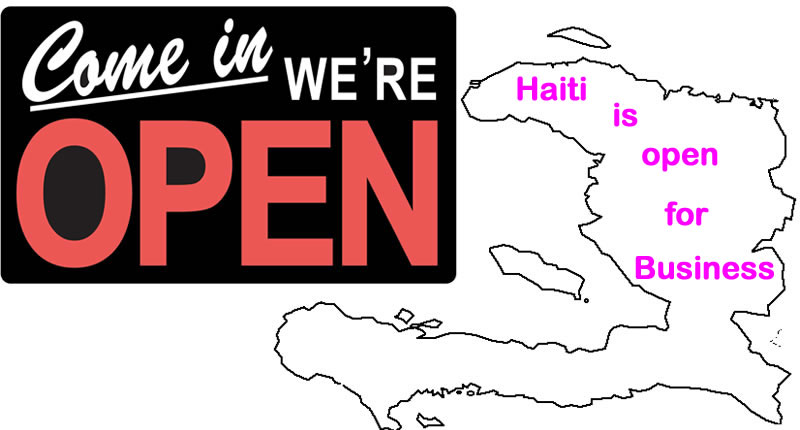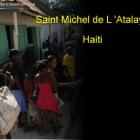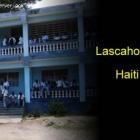ADVERTISEMENT
Finance - Haiti Observer Blog
Finance, Haiti Observer Blog. Read the following articles about Finance
Western Union to enable Haitians to access government payments
The Haitian government has announced that, through the Western Union, the issuing of badly needed government payments, used to meet the needs of the poor through programs for schools and universities, the handicapped and over 200,000 people, will finally be more readily accessible to those in the dreaded 'last mile'.
At first, the service will make funds available to the needy through their more than 600 locations across the country. They also will give technical assistance to assist with payment delivery and plan to offer other options for distributing funds through bank accounts, prepaid cards and mobiles.
Microfinance in Haiti
Microfinance has a long history in Haiti. Even in the 1990's the method was given considerable push from Sogebank's Chief Economist, Pierre-Marie Boisson, who was able to convince the bank's board of directors of its financial and social promise, eventually leading to Sogesol, their affiliate dedicated to microfinance.
While struggling to operate under the high administrative costs of running a microfinance institution (MFI), Sogesol has to meander the microfinance world, all while operating under Sogebank's bank regulations. There are no formal regulations governing microfinance and this leaves bank-run MFI's on shaky ground; if their umbrella organization finds the high-risk nature of giving loans without collateral, a staple of microfinance, unfeasible, their affiliates might face a shut-down. They must also deal with the very real competition from institutions that are not bank run, and, in some cases, are more established in the rural areas, where microfinance finds its biggest audience.
CREFIMA Universite, Haiti
Can one become licensed in their chosen career field in as little as three months?
CREFIMA Université promises this is indeed possible. The private university in Port-au-Prince, which was founded in 2004, boasts courses that take three years for complete certification in the fields of Finance, Accounts, Management, and Project Management. Adding to this impressive roster, they also give courses in Computer Engineering, Computer Science, and Marketing.
To become enrolled at CREFIMA Université and benefit from their accelerated learning courses, designed to get professional, competent people out into the work force at a quicker pace, but without sacrificing education, one must meet the requirements of, for the first year, a degree in Bacc2, for the second and third year, a degree in Bacc2 plus a first or second year university course.
Payment By Credit Cards To Be done In Haitian Gourde
From 3rd January Payment By Credit Cards To Be Made In Gourdes In Haiti As Per The Bank Of The Republic Circular
The Bank of the Republic of Haiti sent out a circular to credit card companies and banks, late November informing them that all operations in Haiti territory paid by credit card will be in gourdes, exclusively, regardless of the place the credit card is issued. The circular has been issued in accordance with the 14th May 2012, Act, paragraph 5 of Article 83 of financial institutions and banks. Procedures for credit card billing transactions are determined by the circular. On 3rd January 2013, provisions of the circular will be enforced.
Loan to upgrade Cap Lamandou Waterview Hotel in Jacmel
The Cap Lamandou Waterview Hotel is in need of upgrading. The Clinton Bush Haiti Fund is a nonprofit making organization that was formed after the 2010 earthquake. It was at a time when President Obama requested former presidents Clinton and Bush to organize fundraising for Haiti. It was formed to collect money from well wishers, and the money collected was to be used to reconstruct Haiti by increasing job opportunities and causing economic improvement. With these two opportunities being created Haiti is believed to improve gradually.
Clinton Bush Haiti fund is meeting its role by giving $2.59 million loans to improve four businesses and workforce development programs. The four businesses were Regis College, Cap Lamandou Waterview Hotel, CLYF Quincallerie and SOFIHDES. These will ensure that Haiti will gain stability in its economy.
The Power of the Haitian Diaspora
Haiti needs help from the most powerful source of financial resources, its Diaspora.
The Diaspora, dispersed throughout many countries, has the largest population living in the U.S., at 2.5 million plus residents. Its remittances to Haitian families, most of whom are desperately poor, totals up to around one billion annually, 25% of Haiti's gross domestic product (GDP). To give an idea of the significance of remittances, they exceed the GDP's annual foreign direct investment and export revenue.
The Diaspora is flush with not only huge cash reserves, but with potential investors, business partners, and innovators. The educated class of the Diaspora includes people with advanced degrees in law, education, medicine, science, and information technology, as well as business. Their brain trust is powerful and multi-faceted.
Haitian Diaspora Remittance Helps Haiti and U.S. Economies
Many Haitian Diaspora living in states like Florida, New York and Massachusetts send money to their families in Haiti with regularity. The recipients of these remittances are overwhelmingly poor. With their remittance income, they spend for the basics, which mean shelter, food staples, articles of clothing, and medicines. These people live well below the poverty line by any standard and 55% of them have no other income to depend on.
Since the 2010 earthquake toppled Haiti, the country's economy has depended heavily on receiving remittances from the Haitian Diaspora. With about one in five families receiving remittances from relatives, Haiti's Central Bank estimates the Diaspora sends around one billion yearly to Haiti. This figure adds up to more than 25% of Haiti's Gross Domestic Product (GDP), and exceeds its annual foreign direct investment and export revenue.
The Importance of Gross Domestic Product
The gross domestic product (GDP) is a measurement of how healthy the economy is. The GDP is made up of income and spending totals. The rate is calculated either annually or quarterly, as compared to the previous year or quarter. For instance, if the quarterly GDP is up 1.5%, this means a 1.5% growth in the economy over the last quarter.
The GDP formula is too complex to explain, but it can be simplified for discussion's sake. Calculation occurs by one of two methods. The income model totals annual workers' wages, or the spending model totals annual consumer spending. When both models' totals are compared, they should approximate the same figure.
Leopard Capital Gives Haiti its First Private Equity Fund
Leopard Capital has inked a deal with the International Finance Corporation (IFC) to set up the first private equity fund to re-energize Haitian small and mid-size enterprises (SMEs) wiped out by the 2010 earthquake.
With a goal of securing $40 to $75 million to re-capitalize Haitian businesses, the Leopard Haiti Fund (LHF) has attracted $20 million in funding from three development banks: IFC, LHF's senior partner, has invested $8.5 million; the Netherlands Development Finance Company (FMO) $8.5 million; and Multilateral Investment Fund (MIF) $3.0 million.
LHF will pour financing into four potential-growth areas: food manufacturing, sustainable energy, tourism, and low-income housing. The bulk of LHF's financial resources will help already-open businesses grow by re-capitalizing operations and restoring structural damage. A portion of LHF's investment funds will support SMEs and new businesses.
Just like in the US, Haiti will offer Home mortgages
The "Haitian Joudalist" has learned that "Micro-mortgages" will be offered to Haitians as part of a new program funded by the International donors of Haiti. Former President Bill Clinton stated that this type of mortgage will be offered to the majority of people in Haiti, including the very poor.
Welcome to the world of Bills in Haiti
Does this mean that from now on, Haitians in Haiti will be able to feel the heat of "High Stress" that we, the Haitian Diaspora" have become accustomed to in the US and Canada?
Don't take me wrong, it will probably be a good thing for the people in Haiti to have access to funds. I just want them to know that they need to be smart about that and use it in a way that will make them become more financially independent.
Our objective is to share with you news and information about Haiti and the people of Haiti. Traditions, habits and the way we were or grew are alive in this site. We highly recommend that you Subscribe to our Newsletter and also share with us some of the things that are memorable and made us unique people.


 Haitians are a Proud People
Haitians are a Proud People  Informative Marketing and Advertising in the Haitian Community
Informative Marketing and Advertising in the Haitian Community  Saint Michel de L 'Atalaye
Saint Michel de L 'Atalaye  Lascahobas, Haiti
Lascahobas, Haiti  La Chapelle, Haiti
La Chapelle, Haiti